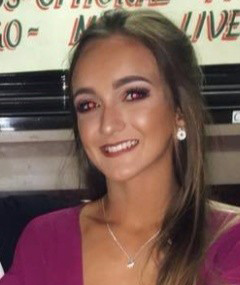As the name implies, creative writing is a form of writing that involves tapping into your creative and imaginative mind. It is the expression of your thoughts, imaginations, and creativity through text. Creative writing is a broad field as it incorporates different forms. While some creative writers do it as a hobby, others intend to be published, authors.
Whatever your drive or motivation is, one's skills in creative writing must be honed to ensure success in the art. Creative writing is like a journey involving several steps, but it's important to get acquainted with the concept of creative writing before you know the things involved.
The Concept of Creative Writing
Creative writing embraces various styles and genres behind the scope of academic writing and technical writing. Character development, plot, structure are key elements in creative writing combined with the writer's imagination. The various forms of creative writing include:
1: Fiction Writing
Fiction writing encompasses numerous genres and subgenres. Fiction writing involves the creation of a story built on non-existent characters. Flash fiction, short stories, and novels are all forms of fiction writing. It covers a vast range of themes, details, and styles. It relies on the writer's imagination to create a world that feels real.
2: Nonfiction Writing
Contrary to popular belief, fiction writing isn't the only aspect of creative writing. There are others as well, one of which includes creative nonfiction writing. In this form of creative writing, the writer adopts specific techniques and writing styles to communicate a non-fictional narrative. Examples of creative nonfiction writing include personal essays and memoirs. In addition, in this form of writing, creativity enhances the appeal of a real story or true-life event.
3: Playwriting
Playwriting is the art of writing plays. These plays contain a story or content that live characters on stage will perform. Plays have varying structures; a play can contain a single act or multiple acts.
4: Screenwriting
Screenwriting is the placement of a narrative or story within a dialogue text and blocks of action. It involves scene-setting and adherence to a particular writing structure. Initially, screenwriting was explicitly for movies or television series. However, thanks to streaming technology, screenwriting is now adaptable to various formats.
5: Poetry Writing
Poetry is the infusion of text with rhythm bordering on musicality. A poem can be performed on stage or written. It can also be short or long, including several verses. In addition, there are rhyme poems and free verse poems.
Steps to Creative Writing
If you want to become a successful creative writer and keep your imaginative juice flowing, follow these steps:
1: Read Extensively
To be a good writer, you have first to become a good reader. Reading builds your wealth of knowledge, which is a fundamental writing tool. It's impossible to write well if you don't read well because there will be no reference or inspiration to draw from. When you develop an appetite for reading books, novels, articles, and feature stories, you develop your vocabulary and learn effective writing structures that you can adopt when writing your works.
As you develop an appetite for reading, ensure you read best-selling books and works from the best writers in the industry. Also, read books or novels in different genres because this is key to discovering your niche or interest.
2: Write Consistently
This is one of the best creative writing hacks. The more you write, the better you become at writing. There are times your mind will race with ideas and imaginations. When this happens, please don't ignore it. Instead, get a pen or your device and start writing. It doesn't matter if such ideas or imaginations make sense or not; just write. Good or great ideas can be born out of seemingly bad ones. They can also inspire a story you've been planning to write. You can also get the advantage of therapeutic writing exercises.
There are various writing tools, such as Google Docs, Pure Writer, Draftable, etc., that you can use to create your works.
3: Write from the point of view
A story or essay without a point of view is content without depth or drive. It will also bore your audience because they can't relate to the point or message of your writing. Having a point of view makes your content more relatable to your audience and adds your unique tone to the story. There's the first person point of view, second-person point of view, and third-person point of view. The third-person point of view also has a subcategory known as the omniscient point of view.
4: Employ Literary Devices
Literary devices are one of the key elements that distinguish creative writing from other forms of writing. It adds depth and aesthetics to your writing. Examples of literary devices include metaphors, imagery, alliteration, assonance, allegory, personification, simile, etc.
5: Write for an Audience
Know who makes up your audience or readership before you begin writing. There are different audiences for different forms of creative writing. Having a niche helps you tailor your content, its scope, and its tone to your target audience. If you want to grow in creative writing and even become an authority quickly, find a niche and become a master at it.
6: Don't Stop at the First Draft
A good writer understands that the first draft is a raw copy of his emotions, imagination, and tone. No matter how good you may be as a writer, you'll rarely get everything right in your first draft. So revisit, review, rework, and rewrite your first draft if necessary. There are no limits on the number of times you can work on your initial draft. What should matter is that the result or final draft is the best version of that content.
7: Participate in a Writing Workshop
Budding writers should join a writers' community because it's one of the fastest and most effective ways to develop one's creative writing skills. Here, your writing is exposed to constructive criticism, and this will help you improve on crucial elements such as character development, choice of words, and storyline. You also get to be mentored by writing gurus.
Final Thoughts
If you intend to monetize creative writing, focus on building a portfolio that can be included in your resume and apply for creative writing jobs. Having a portfolio can help you pass the screening process carried out by an online resume parser.
 Author bio:
Author bio:
Lori Wade is a journalist and content writer from Louisville. Lori creates news and informative articles about copywriting, freelance, and creative writing. You can find her on LinkedIn.



Leave Comment